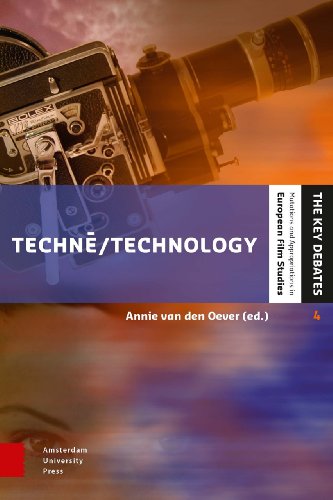Zeitschrift für Medienwissenschaft 8: Medienästhetik (2013) [German]
Filed under journal | Tags: · aesthetics, art, cybernetics, media, media theory, networks, philosophy of technology, technology

Der Schwerpunkt «Medienästhetik» findet seinen Ausgangspunkt in einer Beobachtung Félix Guattaris, die in ihrer ganzen Dringlichkeit vermutlich erst heute einzusehen ist: Die Produktion von Subjektivität, die mit der allgemeinen Kybernetisierung der Lebensform einhergeht, wurde von Guattari als eine Frage der Ästhetik pointiert. Die medientechnologische Situation, die hinter dieser Neubewertung des Ästhetischen steckt, hat sich in den letzten zwanzig Jahren durch den Eintritt in eine Prozesskultur, wie sie die multiskalaren, netzwerkbasierten, environmentalen Medien des 21. Jahrhunderts bringen, ebenso verschärft wie ausdifferenziert.
Mit Beiträge von Félix Guattari, Luciana Parsi, Erich Hörl, Geert Lovink, Olga Goriunova, Jens Schröter, Yuk Hui, Shintaro Miyazaki, Anke Heelemann, Petra Löffler, Olivier Simard, Ute Holl, Nacim Ghanbari, Sebastian Haunss, Beate Ochsner, Isabell Otto, Tristan Thielmann, Ralf Junkerjürgen, Juliane Rebentisch, Michaela Ott, Jan Distelmeyer, Oliver Leistert, Theo Röhle, Maja Figge, Daniela Wentz und Sebastian Gießmann.
Guest edited by Erich Hörl and Mark B. N. Hansen
Publisher Diaphanes, Zürich, 2013
ISBN 9783037342404
ISSN 1869-1722
Open Access
216 pages
PDF (single PDF)
PDF (PDF articles)
Margaret A. Rose: Marx’s Lost Aesthetic: Karl Marx and the Visual Arts (1984)
Filed under book | Tags: · 1840s, 1860s, 1920s, aesthetics, art, art history, art theory, avant-garde, constructivism, marxism, painting, socialist realism

“This book offers an original and challenging study of Marx’s contact with the visual arts, aesthetic theories, and art policies in nineteenth-century Europe. It differs from previous discussions of Marxist aesthetic theory in looking at Marx’s views from an art-historical rather than from a literary perspective, and in placing those views in the context of the art practices, theories, and policies of Marx’s own time. Dr Rose begins her work by discussing Marx’s planned treatise on Romantic art of 1842 against the background of the philosophical debates, cultural policies, and art practices of the 1840s, and looks in particular at the patronage given to the group of German artists known as the ‘Nazarenes’ in those years, who are discussed in relation to both the English Pre-Raphaelites, popular in the London known to Marx, and to the Russian Social Realists of the 1860s. The author goes on to consider claims of twentieth-century Marxist art theories and practices to have represented Marx’s own views on art. The book the conflicting claims made on Marx’s views by the Soviet avant-garde Constructivists of the 1920s and of the Socialist Realists who followed them are considered, and are related back to the aesthetic theories and practices discussed in the earlier chapters.”
Publisher Cambridge University Press, 1984
ISBN 0521369797, 9780521369794
216 pages
via Charles, in the Unlimited Edition
Reviews and commentaries: Genet-Delacroix Marie-Claude (Annales. Économies, Sociétés, Civilisations, 1986, FR), Harold E. Maha (History of European Ideas, 1987), Eugene Hirschfeld (2010).
PDF (25 MB, no OCR)
See also the entry on Marxist aesthetics on Monoskop wiki.
Annie van den Oever (ed.): Technē/Technology: Researching Cinema and Media Technologies (2014)
Filed under book | Tags: · aesthetics, art, cinema, film, film theory, image, machine, media, media technology, media theory, perception, phenomenology, philosophy of film, philosophy of technology, photography, technē, technology, television, video, vision

“This fourth title in the series The Key Debates sets out where the term technē comes from, how it unleashed a revolution in thought and how the concept in the midst of the current digital revolution, once again, is influencing the study of film. In addition, the authors – among them André Gaudreault, Geoffrey Winthrop-Young, Martin Lefebvre, Dominique Chateau, Nanna Verhoeff, Andreas Fickers and Ian Christie – investigate how technologies have affected the major debates about film, how they affected film theory and some of its key concepts. This is one of the rare books to assess the comprehensive history of the philosophies of technology and their impact on film and media theory in greater detail.”
Publisher Amsterdam University Press, Amsterdam, 2014
The Key Debates: Mutations and Appropriations in European Film Studies series
Creative Commons BY NC ND License 3.0
ISBN 9089645713, 9789089645715
413 pages

